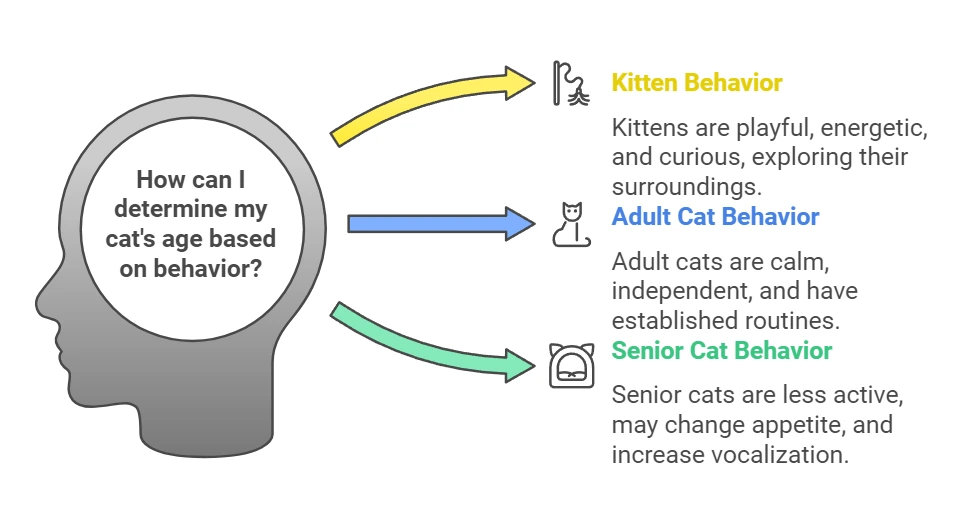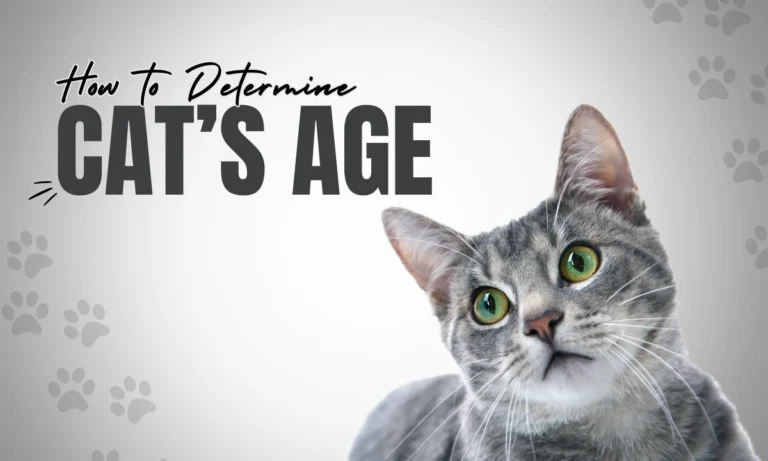Determining a cat’s age without a calculator can be a fun and educational experience. Whether you’re a new cat parent or just curious about your feline friend’s age, there are several methods to help you figure it out. By observing your cat’s teeth, behavior, and physical signs, you can make an educated guess about their age. Let’s dive into the fascinating world of feline aging and explore how to determine your cat’s age with ease.
To help us create more feline tools and guides, this site contains affiliate links, which may earn us a small commission at no extra cost to you.
Understanding Cat Aging
Cats age differently than humans. While the old rule of thumb was to multiply a cat’s age by seven to get their equivalent human age, this method is not accurate. Cats mature quickly during their first two years and then age more slowly. By their second birthday, a cat has reached a developmental stage similar to a human in their mid-20s.
Determining Cat Age by Teeth
One of the best ways to determine a cat’s age is by examining their teeth. A cat’s teeth go through several stages of development, which can give you clues about their age.
Kitten Teeth Development
- 2 to 4 weeks: Baby teeth (deciduous teeth) begin to emerge.
- 3 to 4 months: Permanent teeth start to develop and replace the baby teeth.
- 6 months: All permanent teeth should be in place.
Adult Cat Teeth
- 1 to 2 years: Young adult cats typically have 26 teeth that are free of plaque, tartar, and gum inflammation.
- 3 to 5 years: Teeth may start to show slight yellowing or tartar buildup.
- 5 to 10 years: More pronounced signs of gum disease and dental issues may appear.
- 10 years and older: Teeth may be significantly worn down, and there may be signs of advanced dental disease.
Cat Age Signs in Behavior
A cat’s behavior can also provide clues about their age. While individual cats have unique personalities, there are some general behavioral signs that can help you determine their age.

Kitten Behavior
- Playful and Energetic: Kittens are known for their boundless energy and playful behavior. They love to explore, play with toys, and interact with their environment.
- Curious: Kittens are naturally curious and may get into mischief as they explore their surroundings.
Adult Cat Behavior
- Calm and Independent: Adult cats are generally more independent and calm. They may still enjoy playtime but are more likely to spend time relaxing and grooming2.
- Established Routines: Adult cats often have established routines for eating, sleeping, and playtime.
Senior Cat Behavior
- Less Active: Senior cats may be less active and spend more time sleeping. They may also be less interested in playtime.
- Changes in Appetite: Senior cats may experience changes in appetite and may be more prone to weight gain or loss.
- Increased Vocalization: Some senior cats may become more vocal, meowing more frequently or loudly.
Physical Signs of Cat Age
In addition to teeth and behavior, there are several physical signs that can help you determine a cat’s age.
Eyes
- Clear and Bright: Young cats typically have clear, bright eyes with no signs of cloudiness or discharge.
- Lens Changes: As cats age, their eye lenses may become more opaque, and there may be signs of cataracts or other age-related eye conditions.
Coat
- Shiny and Soft: Young cats usually have a shiny, soft coat. As cats age, their coat may become duller and coarser.
- Graying: Senior cats may develop gray hairs, particularly around the muzzle and eyes.
Body Condition
- Lean Muscle Mass: Young adult cats typically have a high percentage of lean muscle mass and a balanced body condition score.
- Weight Changes: Mature adult cats may experience weight gain as their metabolism slows down. Senior cats may lose muscle mass and become thinner.
Consulting a Veterinarian
While you can make an educated guess about your cat’s age by observing their teeth, behavior, and physical signs, the best way to determine a cat’s age is to consult a trusted veterinarian. A vet can perform a thorough examination and provide an approximate age based on their professional experience.
Conclusion
Determining a cat’s age without a calculator can be a fun and rewarding experience. By observing your cat’s teeth, behavior, and physical signs, you can make an educated guess about their age. Remember, every cat is unique, and individual variations may occur. If you’re unsure about your cat’s age, consulting a veterinarian is always the best option.
Understanding your cat’s age can help you provide the best care possible, ensuring they live a long, healthy, and happy life. So, go ahead and try these methods to determine your cat’s age – it’s easier than you think!

